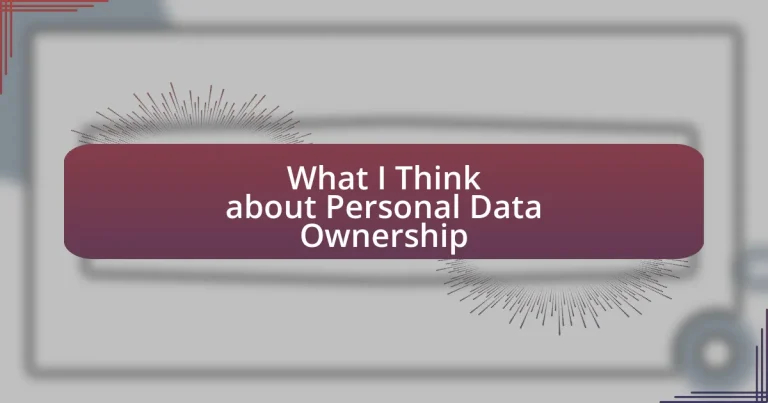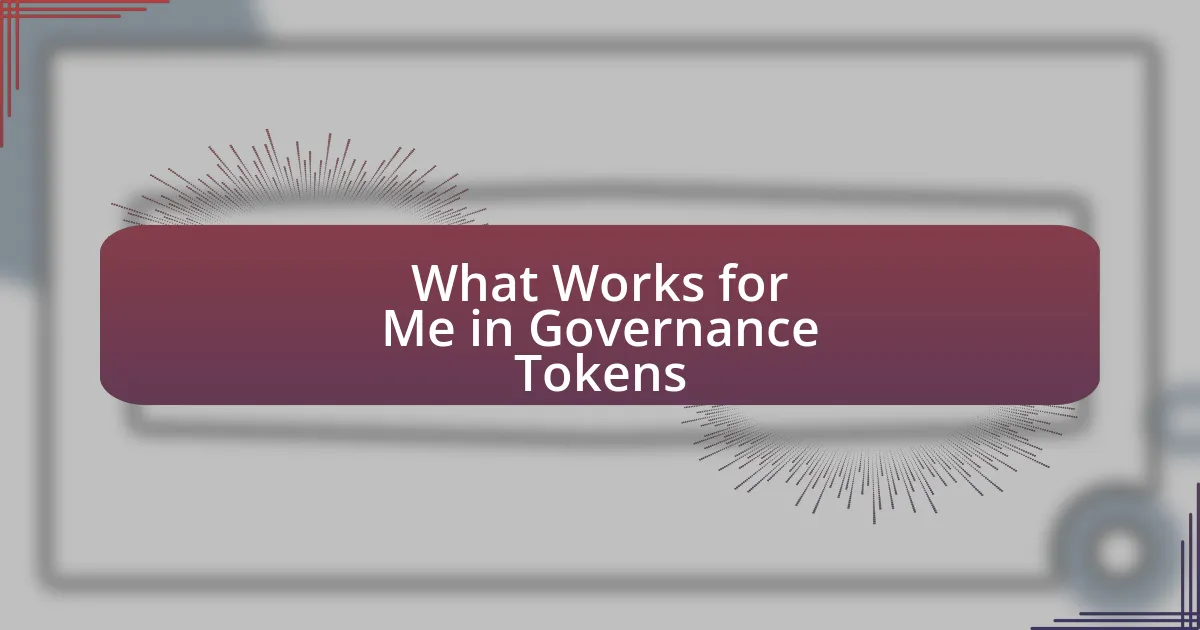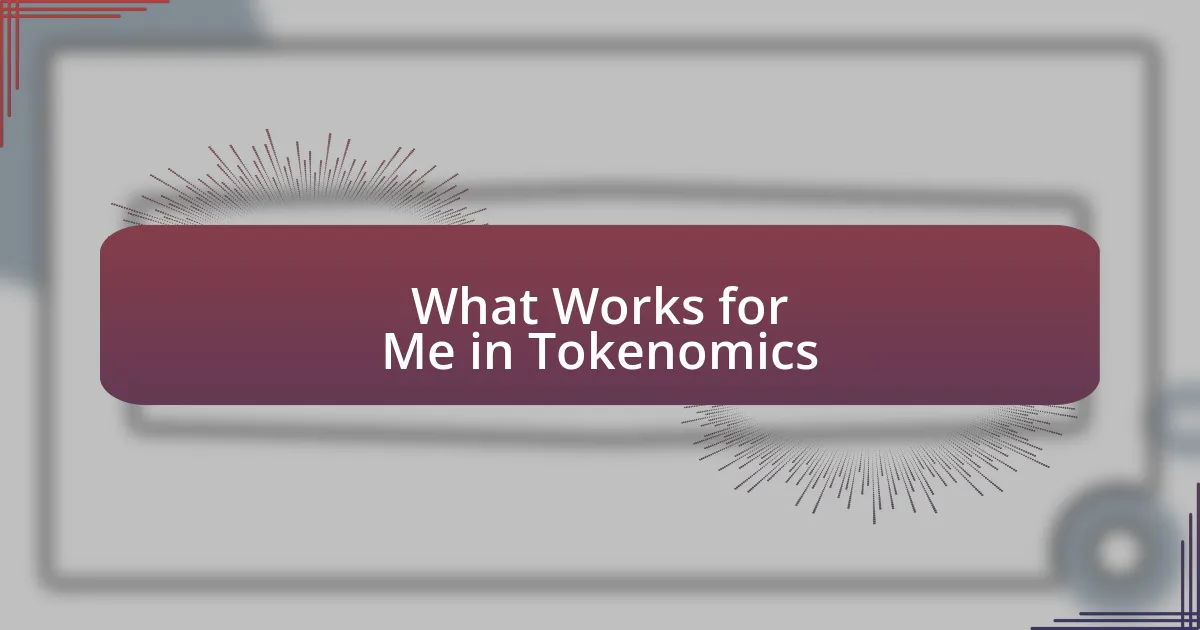Key takeaways:
- Personal data ownership allows individuals to control their personal information, emphasizing the need for clarity in understanding data rights.
- The importance of personal data rights lies in fostering trust, empowering individuals against discrimination, and ensuring they have a say in how their data is used.
- Current laws like CCPA and GDPR aim to enhance personal data rights, but navigating these regulations can be complex.
- Strategies such as using strong passwords, enabling two-factor authentication, and regularly monitoring online accounts can help protect personal data.
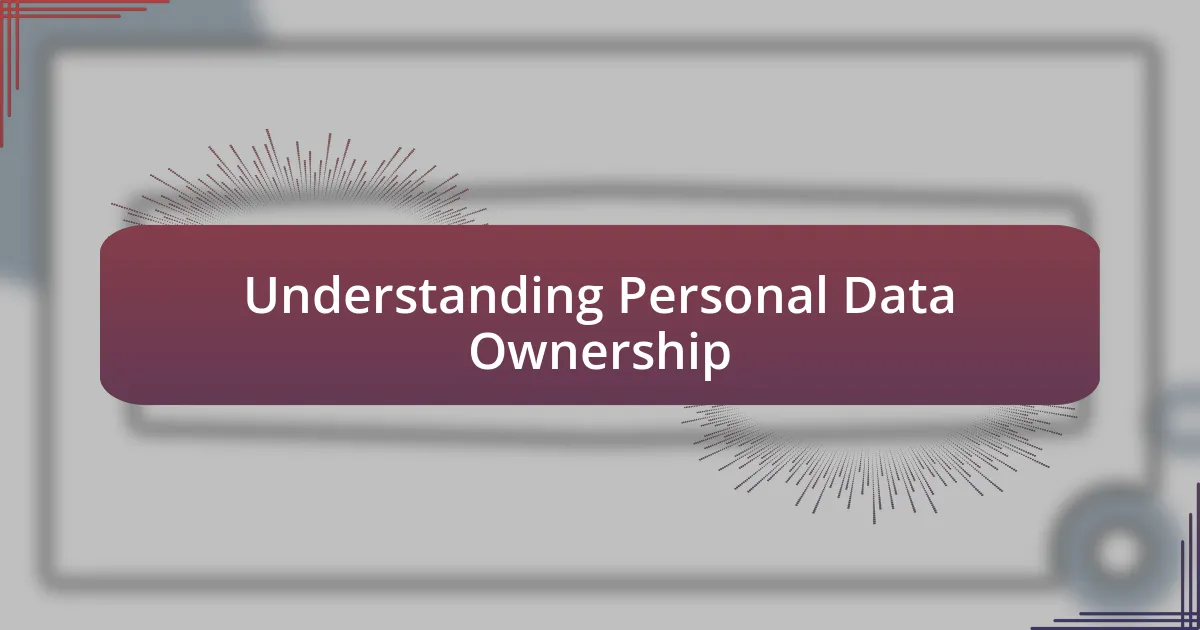
Understanding Personal Data Ownership
Personal data ownership refers to the idea that individuals have the right to control their own personal information. I remember the first time I realized how much data I was sharing online; it felt like I had handed over the keys to my life. Have you ever wondered how much privacy you’ve traded for convenience? This thought struck me as I filled out yet another online form, with little consideration for where my information would end up.
Understanding this concept goes beyond just knowing what’s yours—it’s about recognizing the power dynamics at play. I once read a startling statistic that suggested an overwhelming percentage of people don’t fully grasp how their data is used. It made me reflect on my own practices. Are we passive actors in a digital world, or can we empower ourselves by taking charge of our data rights?
As I navigate social media and digital platforms, I often find myself questioning what “ownership” really means. If we are the primary sources of our data, why do so many people find the terms and conditions so challenging to understand? It’s a complex issue where clarity is crucial, and I believe each one of us should strive to break down these barriers to truly own our digital identities.
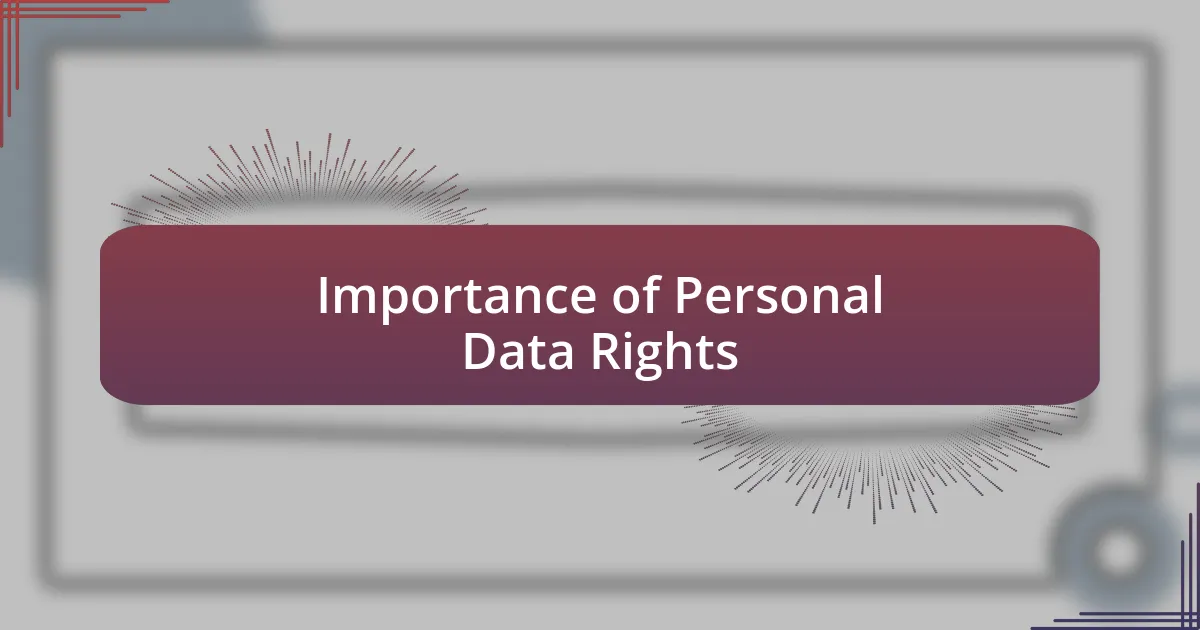
Importance of Personal Data Rights
The importance of personal data rights cannot be overstated. I’ve often felt uneasy knowing that companies can profit off my data without my explicit consent. When I learned about the vast data ecosystems operating behind the scenes, it truly opened my eyes to the need for stricter personal data rights. After all, our information is integral to our identity; shouldn’t we have a say in how it’s used?
I recall a time when I applied for a job online, and I was asked to provide not just my resume but also personal data like my social media profiles. This raised a red flag for me. Suddenly, I was aware that my digital footprint could influence not just my career opportunities but also my sense of self. Personal data rights are essential for fostering trust and ensuring that we feel secure in sharing our information.
Moreover, I often think about the impact of personal data ownership on societal issues like discrimination. Imagine if your data is used to unfairly assess your worthiness for a loan or a job simply based on an algorithm’s bias. By prioritizing personal data rights, we can challenge these injustices and promote fairness. Everyone deserves transparency and the opportunity to reclaim their narrative.
| Aspect | Importance |
|---|---|
| Control | Gives individuals power over their own information. |
| Trust | Encourages a safer digital environment, enhancing user confidence. |
| Fairness | Protects individuals from potential discrimination based on data misuse. |
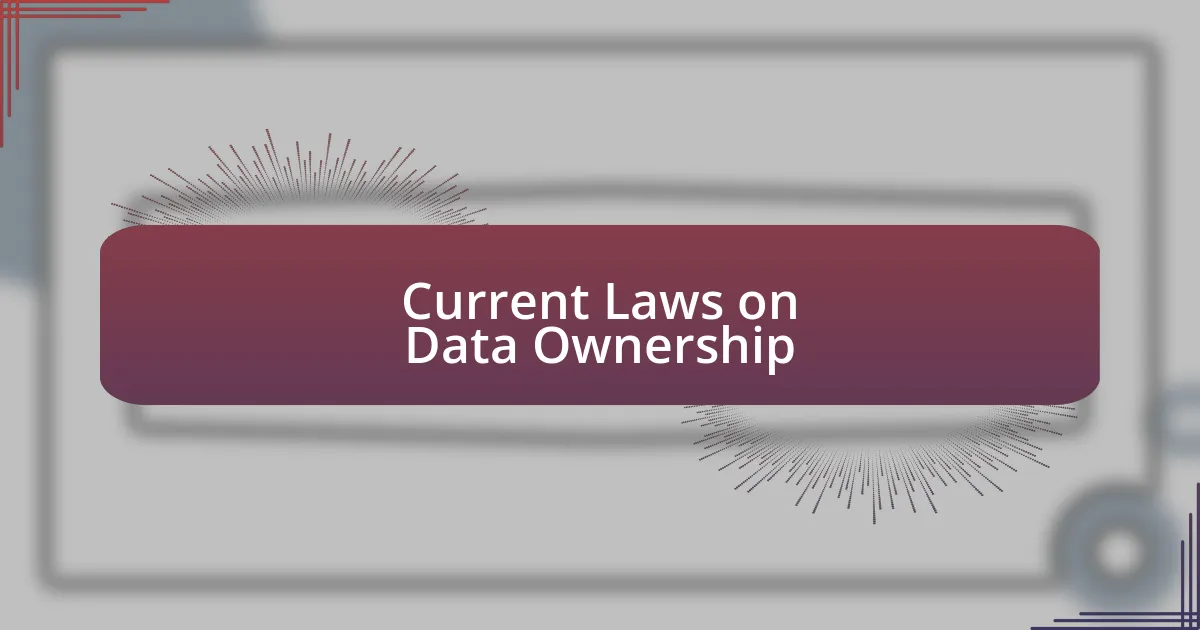
Current Laws on Data Ownership
Current laws surrounding data ownership are evolving, reflecting a growing awareness of privacy issues. In the United States, we see a patchwork of regulations, with states like California leading the way through the California Consumer Privacy Act (CCPA). This legislation grants residents the right to know what personal data is being collected and allows them to opt-out of its sale. However, my experience navigating these laws can be perplexing. With different regulations across states, it feels like a maze, making it challenging to fully understand my rights.
In Europe, things are a bit clearer, thanks to the General Data Protection Regulation (GDPR). This comprehensive framework empowers individuals with robust control over their data and imposes strict penalties for non-compliance. Personal anecdotes remind me of how many times I have received requests to accept cookie policies on websites. It often strikes me as tedious, but I appreciate the transparency they offer, even if I sometimes feel overwhelmed by the options.
Here’s a quick overview of current laws on data ownership:
- California Consumer Privacy Act (CCPA): Grants California residents rights to access, delete, and opt-out of the sale of their personal information.
- General Data Protection Regulation (GDPR): A European Union regulation that provides individuals with extensive rights concerning their personal data, including consent and the right to be forgotten.
- Health Insurance Portability and Accountability Act (HIPAA): Protects sensitive patient health information, emphasizing control over personal health data.
- Children’s Online Privacy Protection Act (COPPA): Requires parental consent before collecting data from children under 13, aimed at protecting younger users’ personal information.
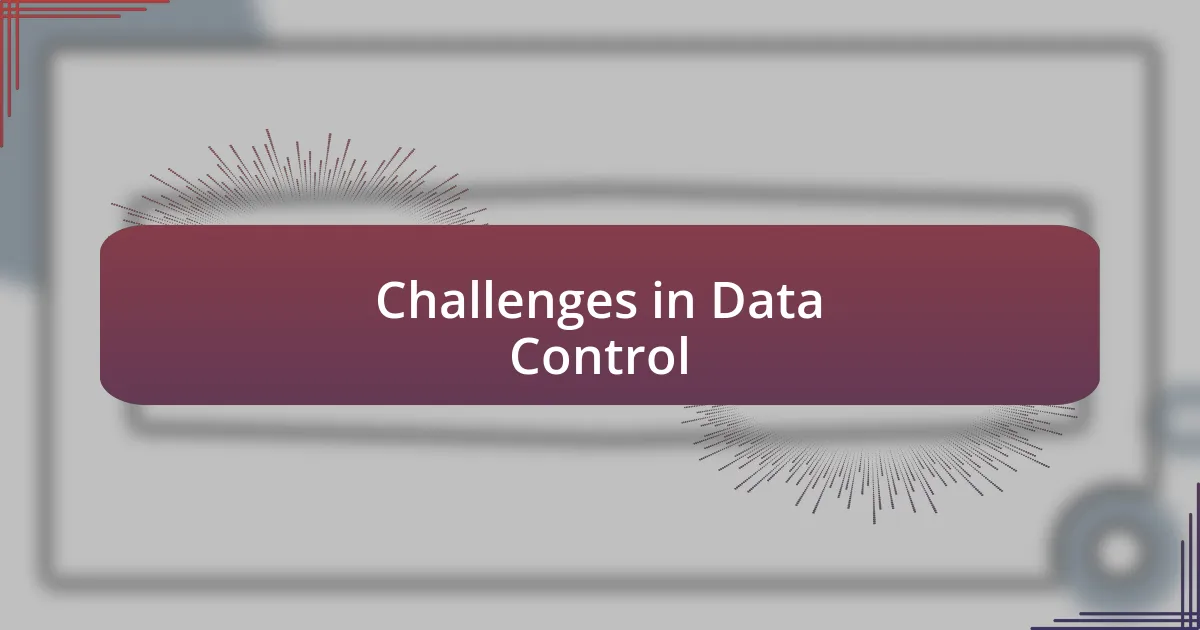
Challenges in Data Control
The challenge of maintaining data control often stems from an overwhelming amount of information. I personally feel at times that I’m drowning in a sea of privacy policies and consent forms. Have you ever tried reading the terms and conditions before clicking “accept”? It’s a tedious process, and I’m left wondering how many truly understand what they’re agreeing to.
Another layer of complexity arises from the sheer volume of platforms collecting our data. I remind myself of that moment when I signed up for a new app, only to find my personal information shared across various services. It begs the question: do I have genuine control over my data if it seems to be in everyone’s hands but mine? It can be frustrating to think I’m supposed to manage my data while being bombarded with notifications and consent requests.
Moreover, trust continues to be a significant issue in data control. After all, how can I confidently share my information when breaches are so prevalent? I remember reading about a major data leak last year and found myself hesitating to provide my information online. This makes me reflect on the boundaries of trust in the digital age, and it’s something that often leaves me feeling uneasy amidst a climate of uncertainty.
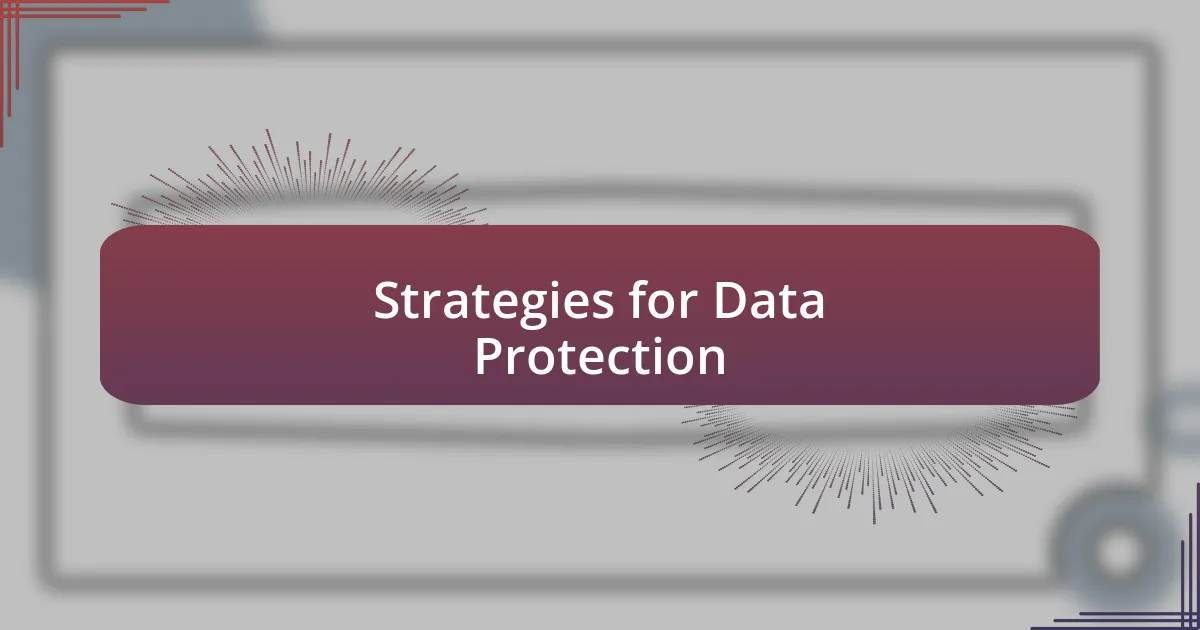
Strategies for Data Protection
When it comes to safeguarding our personal data, I’ve found that utilizing strong passwords is a simple yet effective strategy. I can’t stress enough how critical it is to create unique passwords for different accounts. There’s a sense of security that comes from knowing I’m not relying on just one password for everything. Have you ever wondered how often people reuse passwords, leaving them vulnerable to breaches?
Another approach I’ve adopted is enabling two-factor authentication (2FA). This extra layer of security might seem like a minor inconvenience, but it significantly enhances my data protection. I remember the moment I received a code on my phone after logging in; it felt like having a personal bodyguard for my online identity. This small act empowers me to feel more secure about my information, even if the platform itself isn’t foolproof.
Regularly monitoring my online accounts is something I’ve made a habit of. I often pause to check my connected apps and review privacy settings, which helps me maintain a sense of control over my data. I can recall finding a third-party app I had forgotten about and took immediate steps to revoke its access. It was a reminder that staying informed about who has my information is crucial in this digital landscape where data can slip through the cracks without our notice.
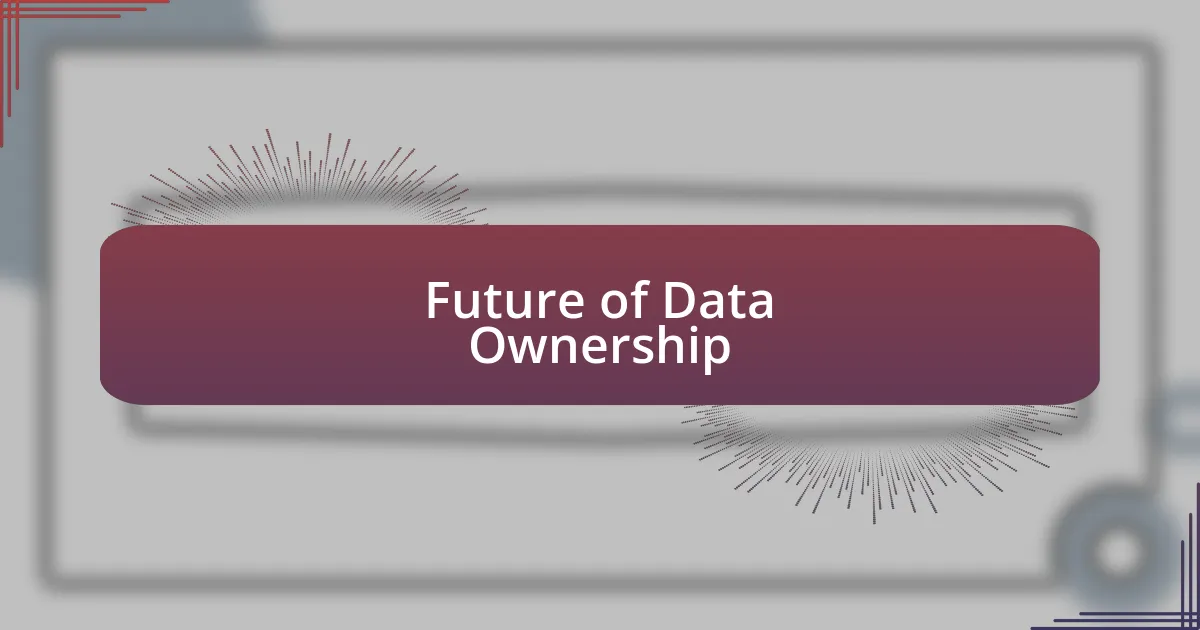
Future of Data Ownership
The future of data ownership feels like a double-edged sword to me. On one hand, advancements in technology are paving the way for individuals to have more control over their personal data. I think back to a time when I stumbled upon a tool that allowed me to see exactly what data companies had on me; it was eye-opening. The realization that I could reclaim my information was empowering, but it also left me wondering about the responsibilities that come with this newfound control.
As we look ahead, I can’t help but think about the potential for legislation that would enforce data ownership rights. Wouldn’t it be great if there were laws that required companies to not only protect our data but also ensure we have the ability to delete it permanently? It’s a conversation I’ve had with friends over coffee; we all agree that having clear rights and responsibilities could change the landscape of digital interactions dramatically.
Yet, there’s an underlying concern that lingers in my mind: are we truly ready for the implications of this shift? I often ponder whether the average person understands the nuances of data ownership, from understanding their rights to managing their information responsibly. It feels like we’re on the brink of a massive shift, but will everyone be prepared to navigate this new terrain?

